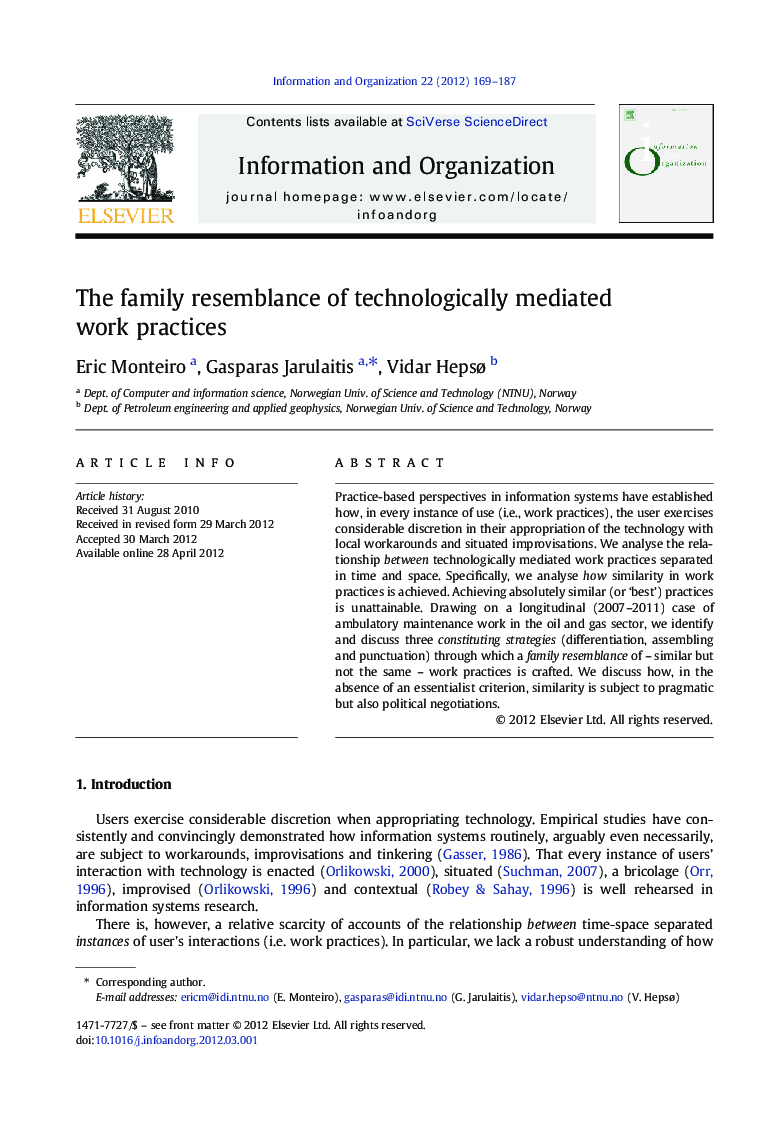| Article ID | Journal | Published Year | Pages | File Type |
|---|---|---|---|---|
| 555289 | Information and Organization | 2012 | 19 Pages |
Practice-based perspectives in information systems have established how, in every instance of use (i.e., work practices), the user exercises considerable discretion in their appropriation of the technology with local workarounds and situated improvisations. We analyse the relationship between technologically mediated work practices separated in time and space. Specifically, we analyse how similarity in work practices is achieved. Achieving absolutely similar (or ‘best’) practices is unattainable. Drawing on a longitudinal (2007–2011) case of ambulatory maintenance work in the oil and gas sector, we identify and discuss three constituting strategies (differentiation, assembling and punctuation) through which a family resemblance of – similar but not the same – work practices is crafted. We discuss how, in the absence of an essentialist criterion, similarity is subject to pragmatic but also political negotiations.
► We analyse the crafting of similar but not identical – family resemblance -work practices. ► We identify and discuss the strategies for crafting family resemblance in work practices. ► We discuss the performative, pragmatic and political aspects of establishing family resemblance in work practices. ► We conduct a longitudinal case study of ambulatory maintenance work in the oil and gas sector.
